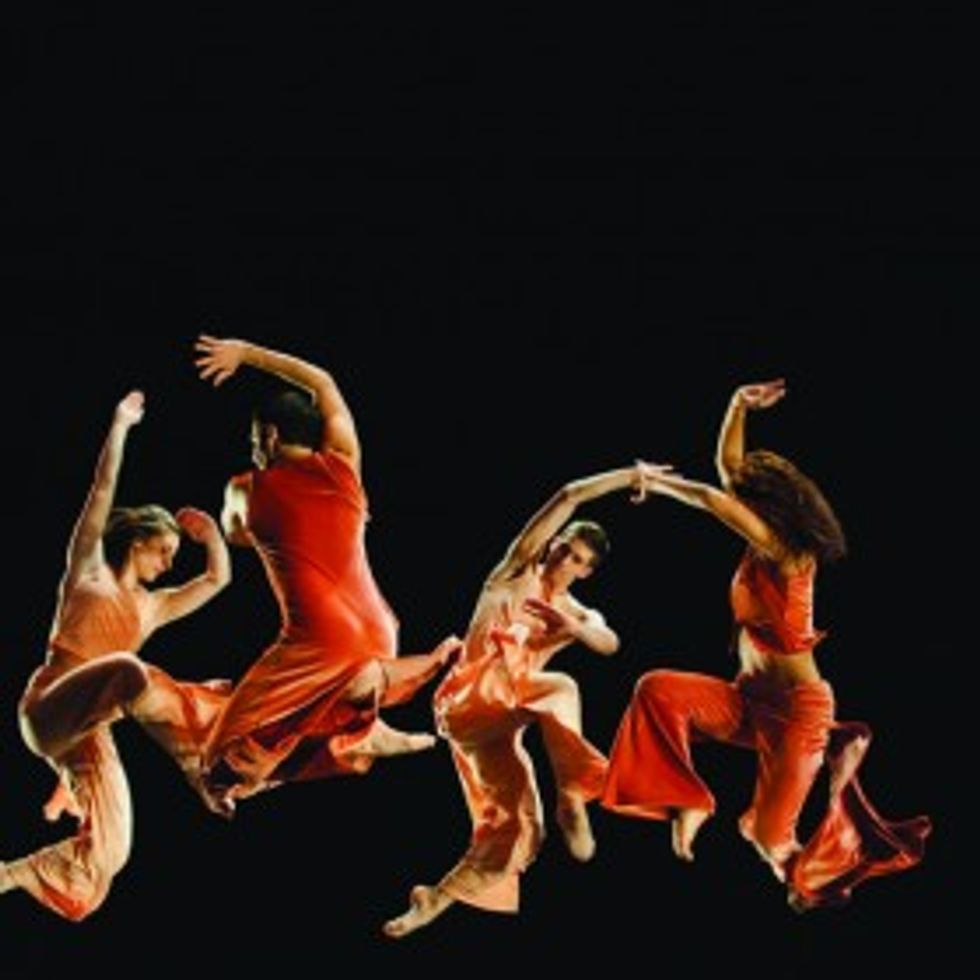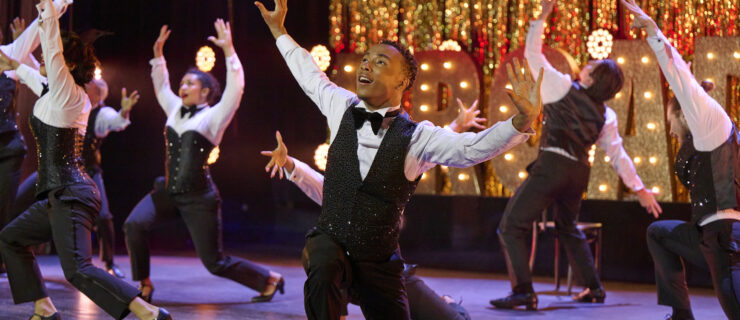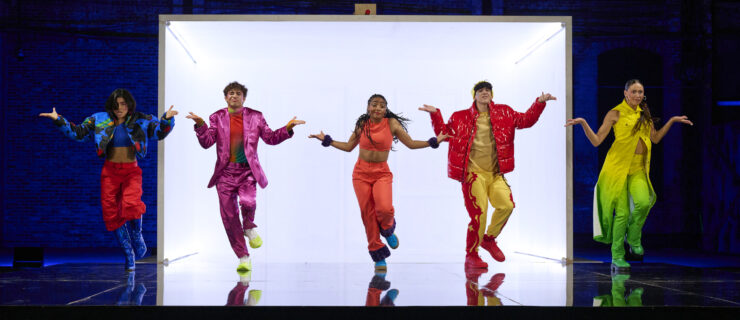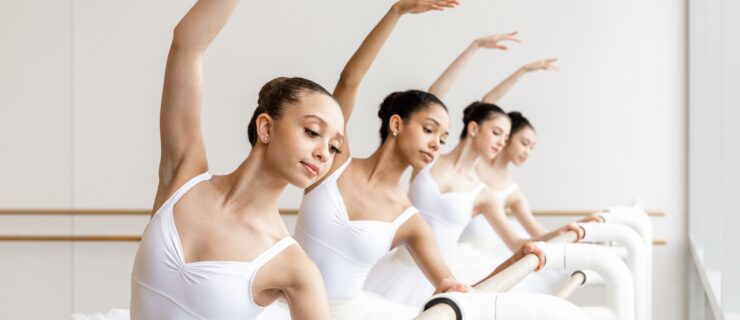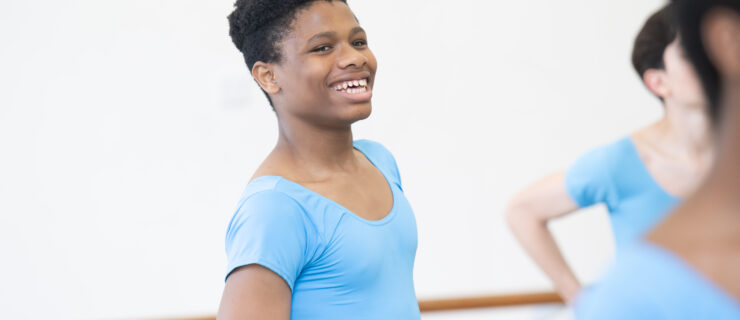Am I Ready for College?

George Mason University students performing David Parson’s Swing Shift (by Alexis Glenn)
In high school, you spend countless hours brushing up on your technique—and maybe even dreaming of the perfect college dance program. But as much as your studio has prepared you for the next step, dance in college is very different from what most dancers experience at home. Even if you whiz through your dream school’s audition and nab a scholarship, you’ll find it takes more than stunning technique to succeed as a dance major. Read on to learn about the top five challenges college freshmen encounter—and how to handle each one.
1. Meeting New Expectations
Becoming a dance major is a lot like starting your first professional job. That’s because in order to best prepare you for the demands of the real dance world, college programs simulate them in a safe environment where you can learn from your mistakes.
Though your studio may have been relaxed about occasional tardiness or missing a class, college is a no-excuses atmosphere. You’re expected to act like a professional. Show up early in appropriate dancewear; keep personal drama out of the studio; learn what extra training your body needs, and do it outside of class; and attend every class and rehearsal.
“You have to be really responsible,” says Elizabeth Price, associate director of the School of Dance at George Mason University in Fairfax, VA. Since you’ll likely be living without your parents for the first time, it’ll be up to you to stay organized and motivated. “There are a lot of distractions in college, and you learn that it really is up to you to make yourself get up and go to class,” says Elizabeth Ernst, a dance major at University of Cincinnati, College Conservatory of Music (CCM).
2. Finding the Courage to Stumble
So much of the college experience is about taking creative risks, like auditioning for your school’s company, trying new styles and presenting your own choreography. You’ll learn how to deal with success, disappointment and everything in between—just like you would in the professional dance world. College dance programs are designed to get you out of your comfort zone and into a place where you’re really growing.
“Sometimes, dancers come into the program and feel they need to prove their ability or value in some way,” says Barry Finkel, co-chair of the dance department at American Musical and Dramatic Academy College and Conservatory of the Performing Arts in L.A. “It can be a sort of trap. If they get caught up in it, that can shut off their receptors to new information.”
It’s important to be willing to reevaluate your technique from its core, even if that means retraining yourself to do a basic plié. “We might ask students to approach something in a completely new way, or take a note that they’ve never received before,” says Marina Benedict, who co-chairs AMDA’s dance department with Finkel. “Sometimes, that can feel like taking a step back.” Knowing that you’re being graded might make you nervous about easing off more advanced steps to rethink the basics, but as long as you’re giving everything you’ve got, showing that you’re eager to learn and following the teacher’s instructions, there’s usually no need to worry about grades.

Sarah Haggerty as a dance major at University of Florida (by Ani Collier)
3. Finding Space to Grow
“I knew I was a big fish in high school, but I understood that when I went to college it wouldn’t be that way,” says Sarah Haggerty, a recent dance graduate from the University of Florida. If you’ve spent years as the best dancer at your home studio, entering an environment with dancers who were also the best at their studios can be a big adjustment. But all it takes to make the transition is a little humility and a willingness to grow.
When Sarah arrived at the University of Florida, she was happy to find that the dance department was a close-knit, welcoming environment, even though the larger university had tens of thousands of students. Instead of feeling she needed to compete with other dancers, she was able to focus on opening up and becoming a unique artist. “In high school, dancing was all about technique,” says Sarah. “I was never asked to find my individuality or explore who I was as a dancer and a person. When I got to college, I needed to shift my view of dance and open my mind to know that I could be in a vulnerable place and be OK.” And at CCM, Elizabeth spends even more time with her fellow dancers than when she was in high school, since they also live, eat and spend weekends with one another.
4. Surviving The Day-to-Day
Even if you’re used to dancing several hours a day, the physical demands of being a dance major are often more intense than what dancers experience in high school. That was the case for Sarah, who turned to massaging her muscles with tennis balls and taking long showers to combat the tightness caused by increased hours in the studio. At schools like George Mason, dancers go through a full athletic screening to find weaknesses that could lead to later injuries, and many universities have an athletic trainer on hand who can work with dancers as they adjust to the heavy workload.
5. Expanding Your Definition of Dance
Almost any college faculty member will tell you that two of the most important qualities of successful dance majors are open-mindedness and eagerness to try new ideas. “The ability to shift the way you’ve been viewing dance is a necessity,” says Sarah. You’ll dive into new dance styles you may not have much experience in, and you’ll study dance-based academics like dance history, anatomy and choreographic theory. During the process, you might find that you not only become a different dancer, but also develop new ideas about what dance is and why you do it.
“Throughout college, you’re going to be constantly exposed to new things,” says Price. “That’s actually the point of college—expanding your mind and body. You may not be able to do everything well at first. But over time, you will. Just enjoy the experience.
